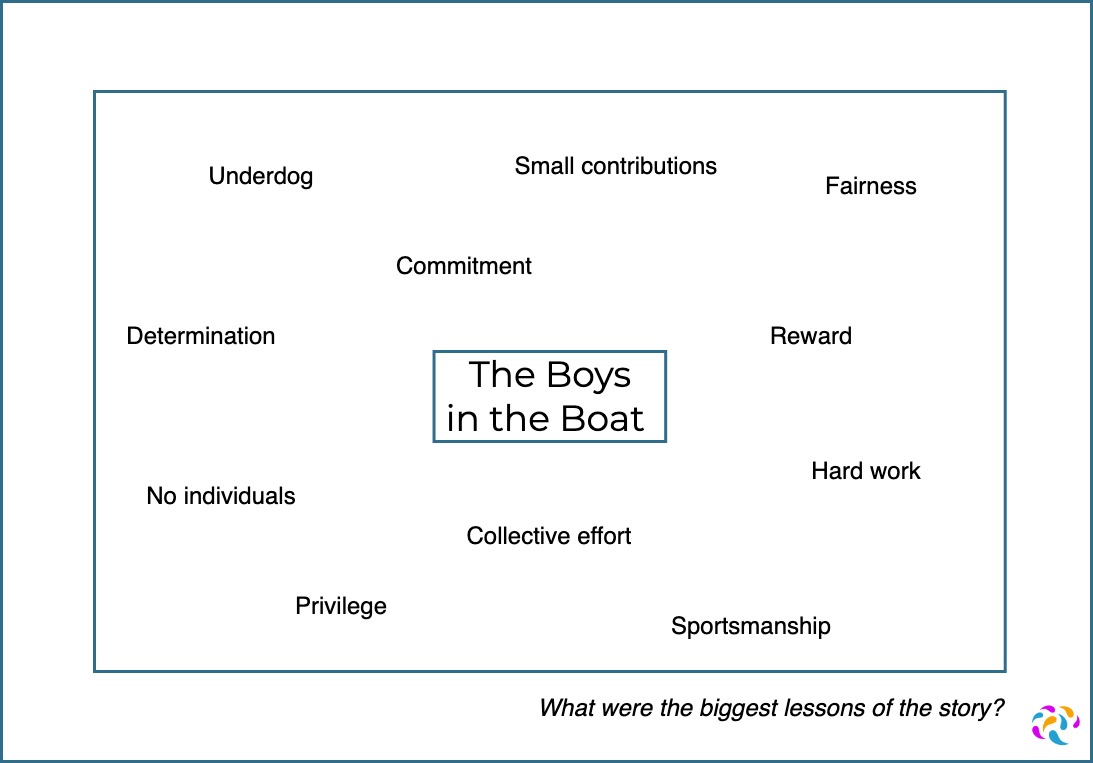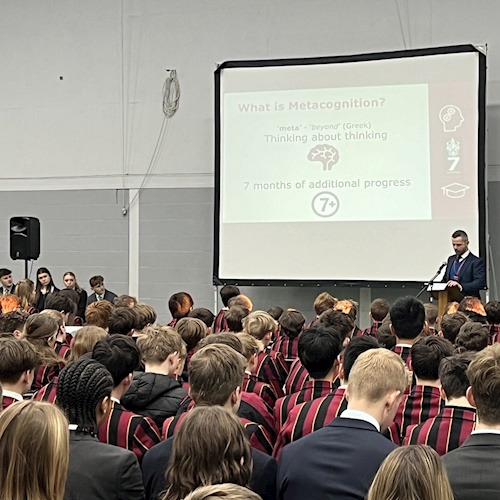
Over the previous year and a half, the College has been working towards becoming an accredited Thinking School. Here at Shiplake, we want to ensure that our pupils are fully prepared for the uncertainties, demands and challenges of their future pathways. And, following on from the most recent staff INSET Day (Friday 5 January), our teachers are taking on board their training and preparations in order to help our pupils achieve this.
Currently through the Shiplake 7, we encourage our pupils to adopt a problem-solving approach where they are given the tools to build resilience, foster independent thought and ask the right questions. With the help of Thinking Matters, we are now taking this a step further and working to make thinking even more visible across the College.
Metacognition - thinking about thinking - is another essential skill for academic success and the evidence suggests that it adds seven months of additional progress (based on the research of the Education Endowment Foundation). With a greater knowledge of how the brain works and how we think, we want all our pupils to adopt a problem-solving approach where they have the skills and confidence to tackle any problem in any subject. Last term in Tutor Time, our pupils explored the science of learning, and how they can optimise the power of the brain when learning and revising.
The next step, following on from the recent INSET Day, is to start using some common visual tools to develop thinking across all subjects. These tools are called Thinking Frames, and the first frame that pupils will be incorporating is a Defining Frame (see below), allowing them to capture and organise their thinking. It is a great way to see how much they can remember about something when revising or how much they know about something at the beginning of a new topic.
One of the UK’s leading universities, The University of Exeter, via its School of Education, offers formal accreditation for schools wishing to be recognised as official Thinking Schools. They say:
‘Our definition of a thinking school, therefore, is an educational community in which all members share a common commitment to giving regular, careful thought to everything that takes place. This will involve learning how to think, reflectively, critically and creatively, and to employing these skills and techniques in the co-construction of a meaningful curriculum and associated activities. Successful outcomes will be reflected in students across a wide range of abilities demonstrating independent and co-operative learning skills, high levels of achievement, and both enjoyment and satisfaction in learning.’
Deputy Head (Academic), Mr Paul Jones, providing an update in today’s (Monday 15 January) Whole School Assembly, added:
‘Through our work as a Thinking School, we will embrace a common language of thinking and a common toolkit of resources. We will explicitly make thinking visible across the curriculum and enable pupils to take greater ownership of their learning. Pupils will be encouraged to embrace the challenge of thinking, to become explicitly curious and independent in their learning and to develop the academic resilience to approach any problem with confidence.’
We will be introducing our pupils to all of the Thinking Frames for the remainder of the academic year before welcoming back Thinking Matters back to the College in September for the next phase of work.






















